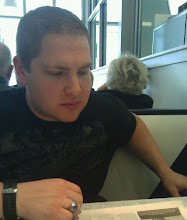In January of this year Utah followed states like New York and California in banning smoking in bars and clubs, adding to its already Draconian list of prohibitions against the State’s minority. Utah, for example, requires memberships to gain access to bars, has a total monopoly on the sale of liquor (though this is also the case in several other states) and has many other inconsistent laws relating to the combinations and amounts of alcohol you can be served at a restaurant. These laws, which are justified as necessary for the protection of society, burden the clubs and the patrons through loss of time and the costs of compliance without detailing what that protection actually accomplishes. Furthermore, the system discourages individuals from frequenting clubs, bars and restaurants and spending money, which is a genuine cost to society in the form of lost opportunities for economic exchange. This seems like a strange situation considering that Utah is the single strongest Republican supporter in the Union and promotes an image of pro-business.
So why do these laws have such broad support? The motivation can be found in the philosophical and social beliefs of the State’s majority, members of the LDS faith. Before I continue I wish to make a few things clear. First, it is not my intention to deride the LDS church for its beliefs or to make comments on the merits of those beliefs. Second, I do not believe that economic considerations are strictly superior to philosophical and social beliefs. Instead I want to use Utah (and other states) as an example of how an overwhelming majority can legislate morality by creating laws that only apply to the minority.
California and New York pursue similar legislation in the supposed pursuit of public safety via gun laws. While the motivation is not religious, as it is in Utah, it certainly is philosophical and it has similar ends: it discourages free-market exchanges that have a social cost in the form of lost opportunities (and the taxes generated by those exchanges). Whether the gains to society in the form of a “safer” or more “moral” society outweigh the costs of lost exchange is an empirical question that I suspect would be impossible to accurately measure, but one thing is certain: the minority is legislated against simply because the majority have the power to do so and not necessarily because of any “factual evidence.”
Citizens of New York (and especially of NYC) believe that places like Utah are dangerous because of the free access to guns, while citizens of Utah believe that NYC is dangerous because of free access to alcohol and other “immoral” indulgences. But somewhere in the middle is probably the truth: too much access to either guns or alcohol will allow for some form of increased costs to society through negative externalities. But does this mean that the best solution is to create virtually insurmountable obstacles for free exchange in these markets? Put another way, is the amount of drunk-driving or gun related injuries/deaths in either state so great that it warrants total prohibitions at the expense of those who enjoy using guns for hunting and sport or social drinking? I certainly have not seen any evidence that would lead me to believe this is the case, but slowly, year by year both Utah and New York (and California) seek to impose the will of the majority through further legislation.
And this gets back to the real issue: the dangers of a majority tyranny. When you have an absolute majority, “evidence” or “justification” need not be consulted when making decisions. Instead, emotions and beliefs act as the modus operandi. Genuine opposition is a good thing because it forces you to explain and justify your beliefs with evidence, making the motivation and purpose of your pursuit clearer to everyone (including yourself). And it requires that those passing laws be forced to share in the effects or costs (through compromise) which change peoples’ incentives and create a better environment for legislation. Many of my LDS friends in Utah consider the state of gun-rights in California and New York to be “excessive liberal tyranny” but wholly support their own state’s prohibitions of alcohol and tobacco. But Utah and California/New York are two sides of the same big-government coin; each believes that the best way to protect society from itself is through legislation, each kowtows to the demands of a portion of the populace, and each bases that legislation on the philosophical beliefs of its majority while turning a blind eye to their lack of evidence.

No comments:
Post a Comment